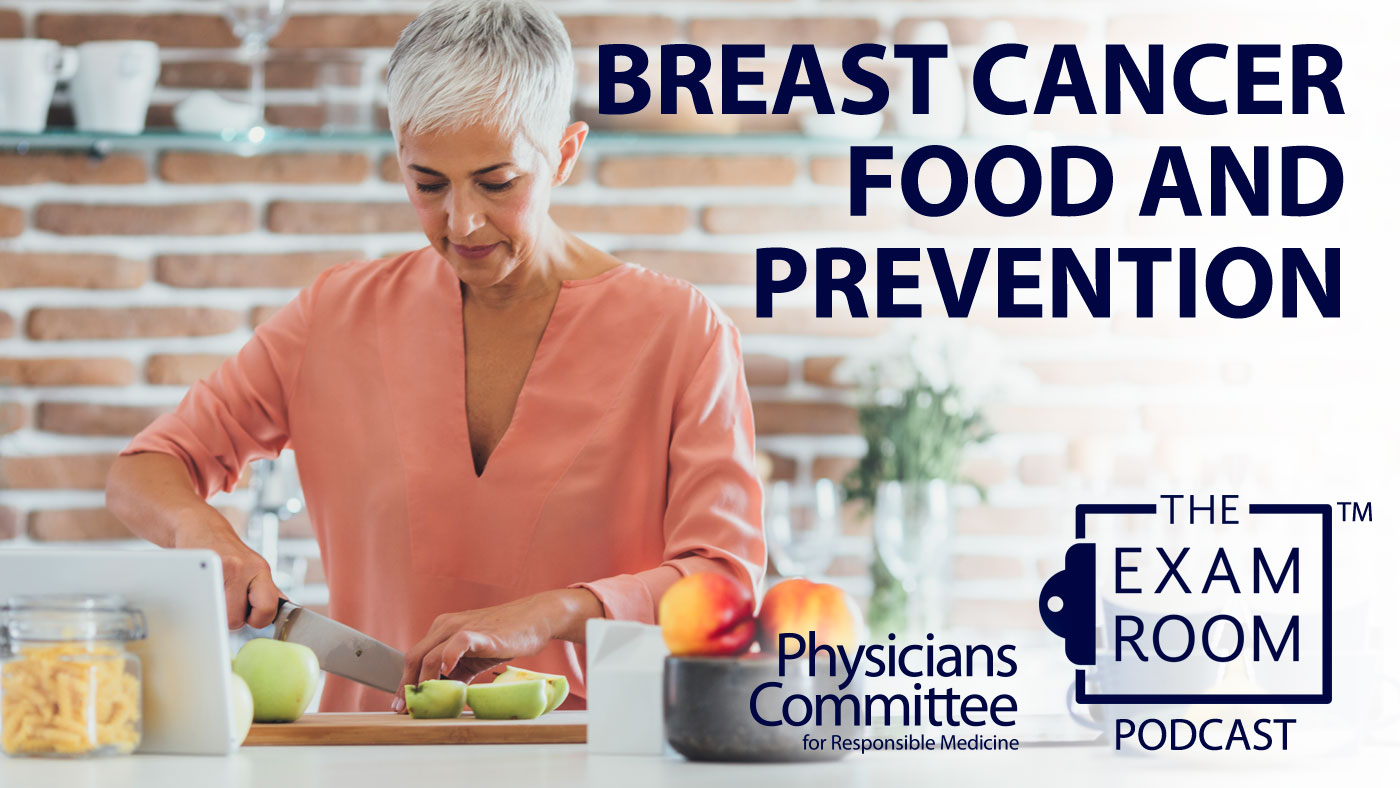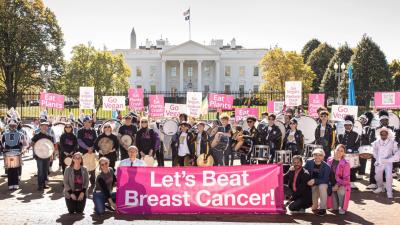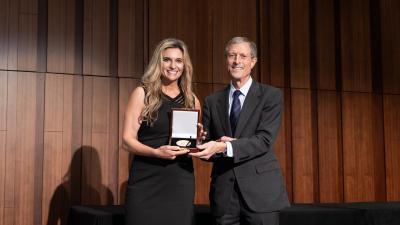Breast Cancer: Food, Prevention, Survival
Research shows that certain foods can not only help prevent breast cancer but also dramatically improve the odds of survival among those who have been diagnosed with it. Conversely, other foods have been proven to increase the risk of developing the disease.
In this special edition of The Exam Room™, “The Weight Loss Champion” Chuck Carroll sits down with Neal Barnard, M.D., to discover which foods have strong cancer-fighting properties and which foods to avoid to keep the risk of developing the disease as low as possible.
Dr. Barnard also shares how a recent flight got him to reexamine the way we view breast cancer awareness. It is critically important that we continue searching for a cure, but he says there should also be an increased emphasis on preventing the disease. Studies show that diet and lifestyle intervention could prevent many of the nearly 41,000 estimated breast cancer-related deaths in the U.S. each year.
Also, Asha Subramanian, M.D., returns to the program to discuss breast cancer from not only the perspective of a physician, but also from that of a mother and woman.
Dr. Subramanian and Chuck also touch on the genetic component of breast cancer and demonstrate how a plant-based diet can lower the risk of developing the disease even if it runs in the family. The effects of age, obesity, race, and animal fat are also examined.
In This Episode
- Foods to lower the risk of breast cancer
- Foods to increase the chances of survival
- The link between processed meat and breast cancer
- The link between dairy and breast cancer
- The link between alcohol and breast cancer
- Shattering the soy and breast cancer myth
- How animal fat affects the risk of breast cancer
- The role of age in breast cancer
- How much to exercise to lower the risk of breast cancer
Studies Referenced
Armstrong B, Doll R. Environmental factors and cancer incidence and mortality in different countries, with special reference to dietary practices. Int J Cancer. 1975;15:617-631.
Carroll KK, Braden LM. Dietary fat and mammary carcinogenesis. Nutrition and Cancer. 1985;6:254-259.
Rose DP, Boyar AP, Wynder EL. International comparisons of mortality rates for cancer of the breast, ovary, prostate, and colon, and per capita food consumption. Cancer. 1986;58:2363-2371.
Lands WEM, Hamazaki T, Yamazaki K, et al. Changing dietary patterns. Am J Clin Nutr. 1990;51:991-993.
Hirayama T. Epidemiology of breast cancer with special reference to the role of diet. Prev Med. 1978;7:173-195.
Sang-Ah Lee, Xiao-Ou Shu, Honglan Li, et. al., Adolescent and adult soy food intake and breast cancer risk: results from the Shanghai Women's Health Study. Am J Clin Nutr. 2009; 89: 1920-1926.
Dorgan JF, Hunsberger SA, McMahon RP, et al. Diet and sex hormones in girls: findings from a randomized controlled clinical trial. J Natl Cancer Inst. 2003;95:132-141.
Cho E, Spiegelman D, Hunter DJ, et al. Premenopausal fat intake and risk of breast cancer. J Natl Cancer Inst. 2003;95:1079-1085.
Boyd NF, Stone J, Vogt KN, Connelly BS, Martin LJ, Minkin S. Dietary fat and breast cancer risk revisited: a meta-analysis of the published literature. Br J Cancer. 2003;89:1672-1685.
De Stefani E, Ronco A, Mendilaharsu M, Guidobono M, Deneo-Pellegrini H. Meat intake, heterocyclic amines, and risk of breast cancer: a case-control study in Uruguay. Cancer Epidemiol Biomarkers Prev. 1997;6:573-581.
Matos EL, Thomas DB, Sobel N, Vuoto D. Breast cancer in Argentina: case-control study with special reference to meat eating habits. Neoplasma. 1991;38(3):357-366.
Snyderwine EG. Some perspectives on the nutritional aspects of breast cancer research. Food-derived heterocyclic amines as etiologic agents in human mammary cancer. Cancer. 1994;74(3 suppl):1070-1077
Participate In Clinical Research
If you’re interested in participating in a study examining reducing the pain of rheumatoid arthritis through diet, please call 855-788-3918.









